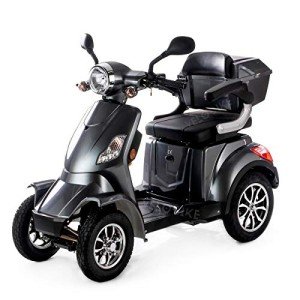Mobility Scooters: A Comprehensive Guide
Mobility scooters have ended up being a necessary mode of transport for lots of people facing mobility challenges. This post explores the different aspects of mobility scooters, including their types, benefits, functions, and a guide for potential buyers.
Understanding Mobility Scooters
Mobility scooters are electrically powered gadgets created for individuals with minimal mobility. They offer a method of transportation for individuals who might have trouble strolling however still wish to retain their independence. They come in different designs and features to deal with a wide variety of needs.
Types of Mobility Scooters
Mobility scooters can usually be categorized into 3 main types:
| Type | Description | Best For |
|---|---|---|
| Compact Scooters | These are small and lightweight, perfect for indoors and short trips. | Users with minimal storage space or those who travel frequently. |
| Mid-size Scooters | A balance between portability and stability, suitable for both indoor and outdoor usage. | Those who require to cover a variety of surfaces. |
| Sturdy Scooters | Big and robust, developed for rugged outside usage and much heavier people. | Users requiring additional weight capability or going off-road. |
Key Features of Mobility Scooters
The option of mobility scooter frequently depends upon the features that line up with specific needs. Here are a few of the key features to consider:
- Weight Capacity: Mobility scooters come with different weight limits. It is vital to select a scooter that can effectively support the user's weight.
- Range: The distance a scooter can take a trip on a single charge varies. Depending on user needs, one may go with scooters with a variety of as much as 40 miles.
- Speed: Most mobility scooters can reach speeds between 4 to 8 mph. Consider what speed is comfy and safe for the intended environment.
- Turning Radius: A compact turning radius is necessary for indoor usage, permitting for simpler navigation in tight spaces.
- Battery Type: The type of batteries utilized can affect the scooter's performance. Lead-acid and lithium-ion batteries are the most common.
Benefits of Using Mobility Scooters
The advantages of mobility scooters extend beyond just transport. Some key benefits include:
- Independence: Users can browse their environment without depending on caretakers, promoting independence and confidence.
- Health Benefits: Using a scooter can encourage outside activity, resulting in physical and mental health enhancements by minimizing sensations of isolation.
- Convenience: Scooters can quickly be operated in different environments, whether indoors, in shopping malls, or outdoors.
Crucial Considerations When Buying a Mobility Scooter
When acquiring a mobility scooter, a number of factors to consider can help ensure that you choose the right model:
Assess Individual Needs:
- Mobility level: Consider just how much assistance the individual will require.
- Variety of use: Determine where the scooter will mainly be utilized (indoors, outdoors, on rough terrains, and so on).
Test Drive:
- Always test drive numerous models to discover a suitable fit. Take notice of comfort, ease of steering, and the scooter's responsiveness.
Evaluation Safety Features:
- Look for scooters with appropriate safety features like lights, indications, and anti-tip styles.
Examine Warranty and Service Options:
- A dependable warranty and readily available service alternatives are crucial for long-term use.
Frequently Asked Questions about Mobility Scooters
1. How quick do mobility scooters go? Related Homepage have speeds varying from 4 to 8 mph, with the majority of created for security instead of high-speed travel. 2. Are there weight restrictions on mobility scooters?Yes, mobility
scooters include particular weight limitations, often varying from
250 lbs to over 500 lbs, depending on the design. 3. Can mobility scooters be utilized indoors?Certain designs, particularly compact scooters, are specifically created for
indoor use and are simpler to steer in tight areas. 4. How typically do the batteries require to be replaced?Battery life can vary based on use, but normally, with appropriate care, batteries may last between 1 to 3 years before needing replacement
. 5. Are mobility scooters covered by insurance?Coverage can vary, but some insurance coverage plans, including Medicare and Medicaid, might cover part of the expense. It's advised to check with individual insurance service providers. Mobility scooters work as a
important tool for many people, enabling them to maintain
their liberty and independence. By comprehending the different types and features of mobility scooters, individuals can make educated decisions customized to their specific needs.
Whether utilized for errands, mingling, or leisurely activities, mobility scooters can improve the lifestyle for those with mobility limitations. Buying a mobility scooter is a choice that can substantially impact a person's every day life. Therefore, individuals need to carefully evaluate their choices and choose a design that best lines up with their lifestyle and mobility requirements
.

